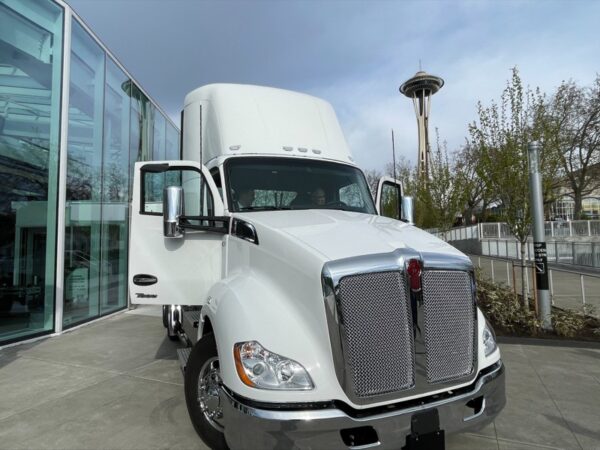Increased traffic, new types of oil, and less safe ships put local fishing economy, environment, and tribal cultural and treaty rights at risk
Sunday March 24th – 30 years ago today, Exxon Valdez oil tanker ran aground, spilling more than 11 million gallons of crude oil into the Alaska’s Prince William Sound. Crude oil travelled through the Sound, into the Gulf of Alaska covering more than 1,300 miles of our nation’s most remote wild shorelines. It is still designated as one of the worst environmental disasters in American history and many fishing runs and native communities have never fully recovered. Washington leaders, experts, and impacted communities marked the milestone by calling attention to new risks, outdated policies, and the devastating impact a spill would have in Washington waters.
Washington state refineries now receive heavy, tar sands oil that can submerge and sink, challenging spill response and recovery, while many of the vessels carrying these oils do not operate with some of the proven safeguards against spill risk required of large tankers. The Washington state legislature is currently considering legislation to address these risks and protect Washington state from the devastating impacts of an oil spill.
House Bill 1578, sponsored by Representative Debra Lekanoff (D, Samish Island) will improve oil transportation safety in Washington by requiring tug escorts for all oil laden vessels, including barges, ATBs, and small tankers in high-risk waterways around the San Juan Islands.
“From Long Beach to Neah Bay to the San Juan Islands Washington communities are working every day to grow rural jobs and stronger communities,” said Becky Kelley, President of Washington Environmental Council. “Washington communities deserve common sense safeguards to protect our jobs, our livelihoods, and our way of life from the threat of a devastating oil spill.”
Local Prince William Sound orcas were devastated during the Exxon Valdez spill, populations to this day have never recovered. These oil spill prevention measures have been included in Orca Task Force recommendations and are a part of Governor-request legislation as a part of the State’s orca emergency response.
“When the Exxon Valdez supertanker crashed and spilled 10.8 million gallons of oil into Prince William Sound, the life of the waters was crippled almost beyond repair,” Lummi Nation Council Secretary Lawrence Solomon. “22 killer whales died as an immediate result of the spill. We recognize killer whales as part of our family. Our word for them is qwe ‘lhol mechen, which means “our relations under the waves.” Untold numbers of herring and salmon died as an immediate result of the spill, and untold numbers of those fish will never be born. We must stand together in protecting our herring, our salmon, our killer whales, our traditional lifeways, and the waters that sustain us.”
“Exxon Valdez showed us that we must all work together in unity, our federal, state and tribal governments and industry to remain ever vigilant against oil pollution and the risk it represents to us all,” said John Ides Sr., Chairman Makah Tribal Council. “As Nu-chan-nulth people, the Makah base our cultural way of life on the religious belief that a balance exists in the world and we hold the bountiful resources of the earth and the oceans in spiritual reverence. We also fundamentally depend on the ocean and its resources for our fisheries-based economy and subsistence harvest which sustains our community. Over one million gallons of oil have been spilled in our treaty area since the 1970s. We clearly understand from our first-hand experience spilled oil does not respect geo-political boundaries and a large spill will impact us all, Canadians and Americans alike. From the added risk from oil spills to the added noise on our waters, additional oil vessel traffic means we must continue to implement the needed vessel safety measures to provide the needed protection for our waterways.”
In December 2003, an oil spill originating at Point Wells near Edmonds was pushed by winds and tides across Puget Sound to Doe-Kag-Wats, a remote and pristine beach and tidal marsh area on the Port Madison Indian Reservation that is sacred to the Suquamish Tribe.
“The Suquamish Tribe knows from firsthand experience how devastating an oil spill can be,” said Leonard Forsman, Chairman Suquamish Tribe. In an instant, our community learned how vulnerable we and all creatures that Puget Sound supports are to the catastrophic effects of even a relatively small oil spill. More and more vessels, and especially those carrying oil, are making their way through our Salish Sea waters. We must do more to prevent spills and ensure that we are prepared to respond when our best efforts to prevent spills fail.”



